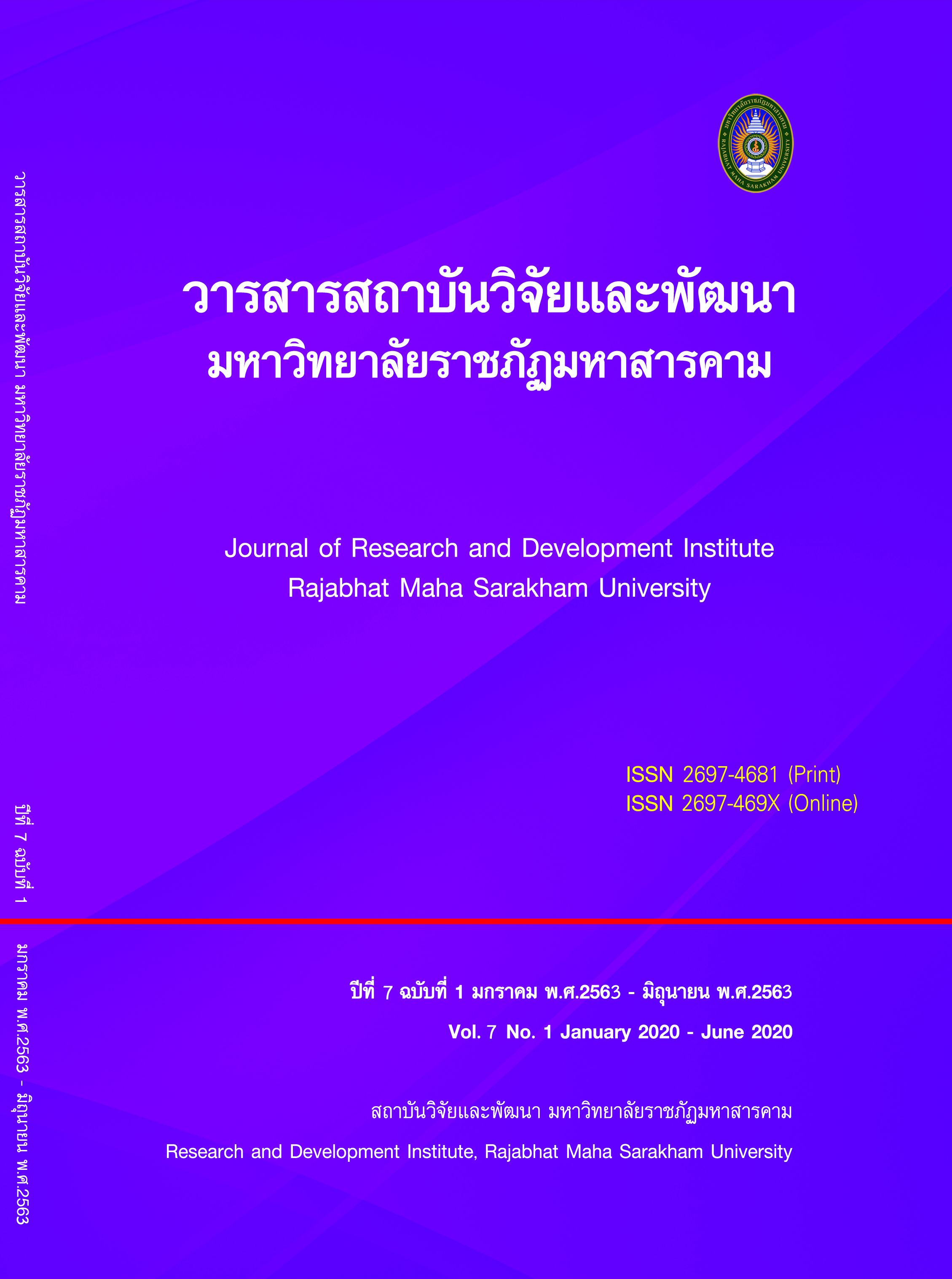An Application of Profile Analysis to Design Activities for Teachers Development in Learning Measurement and Evaluation in Secondary School
Keywords:
Latent Profile Analysis, Activities for Teacher Development, Learning Measurement and EvaluationAbstract
The purpose of this research was to design teacher development activities for learning measurement and evaluation in secondary schools. By developing indicators of measuring and evaluating learning outcomes, study needs, and grouping teachers by needed, create, using and evaluating teacher development activities in learning measurement and evaluation according to the needs group; the target group are 30 teachers. The tools used are handbooks for organizing activities, tests, assessments and attitude tests of teachers. Data were analyzed using descriptive statistics and profile analysis. The results of the research showed that.
- 1. There are 2 components of learning measurement and evaluation in secondary schools which are 1) able to measure and evaluate with 7 indicators, 2) can use evaluation results to develop learners, with 3 indicators.
- 2. There are 4 groups of teachers can be organized by need, the groups who participate in the development of 30 people having a low mean of measurement and evaluation in indicators: 1) evaluating according to learning strands, 2) evaluation of reading, thinking, analyzing, and writing, 3) assess desirable characteristics, 4) evaluate activities, and 5) report the evaluation results.
- 3. Activities for teacher development in learning measurement and evaluation using study through training websites, the professional learning community through Facebook and coaching with the highest level of suitability.
- 4. After participating in the activities, teachers had higher knowledge at the statistical significance of 0.05 with operational skills and attitudes towards measurement and evaluation at the highest level, and activities are suitable at the highest level.
References
References
Chanapat Kaosa-ard et al. (2015). “How to classify the diversity of Seventh grade students’ mathematical process skills? : An applying latent profile analysis”. Academic Journals, Education Research and Reviews. 10 (1) : 10 June, 2015.
Chanaphat Khawsa-ard. (2015). The direct influence of the learning and teaching style affecting to change in mathematical process skills. Doctor of Philosophy Thesis: Mahasarakham University.
Narong Phonyut. (2009). The development of teachers in the measurement and evaluation according to the actual situation of Hong Sang Witthayakhom School, Loeng Nok Tha District, Yasothon Province.. Master of Education Independent Study: Mahasarakham University
Pasin Tangjuang. (2011). Model for competency development of educational personnel. Bangkok: Duangkamol Public Relations.
Samran Mejang et al. (2009). Study of the Validity and Reliability of Average Academic Performance (GPA), subject group and cumulative grade point average (GPAX), student's grade range 2 to 4. Bangkok: National Institute of Educational Testing.
Surawat Thongbu. (2011). A model for learning evaluation based on the basic education curriculum of schools under the Office of the Basic Education Commission in the Northeast. Doctor of Philosophy Thesis: Ramkhamhaeng University.
Suwannee Thanitsorn. (2005). Development of classroom research teachers at TOA Wittaya School (Municipality 1 Wat Kham Saithong) under Mukdahan Municipality, Mukdahan Province. Master of Education Thesis: Mahasarakham University.
Suwimon Wongwanich. (2015). Needs Assessment research. 3rd edition.Bangkok: Chulalongkorn University Press.
Downloads
Published
How to Cite
Issue
Section
License
Articles that are published are copyrighted by the authors of the articles







